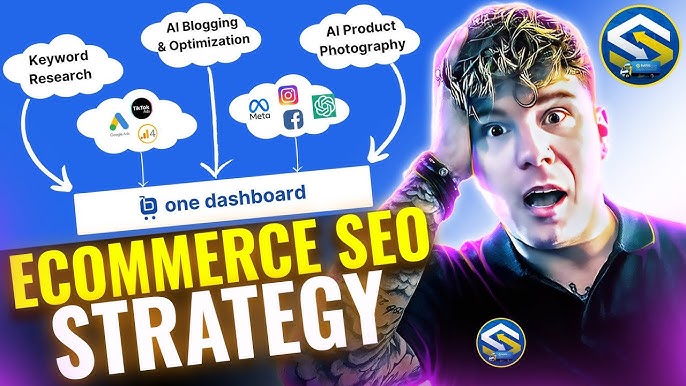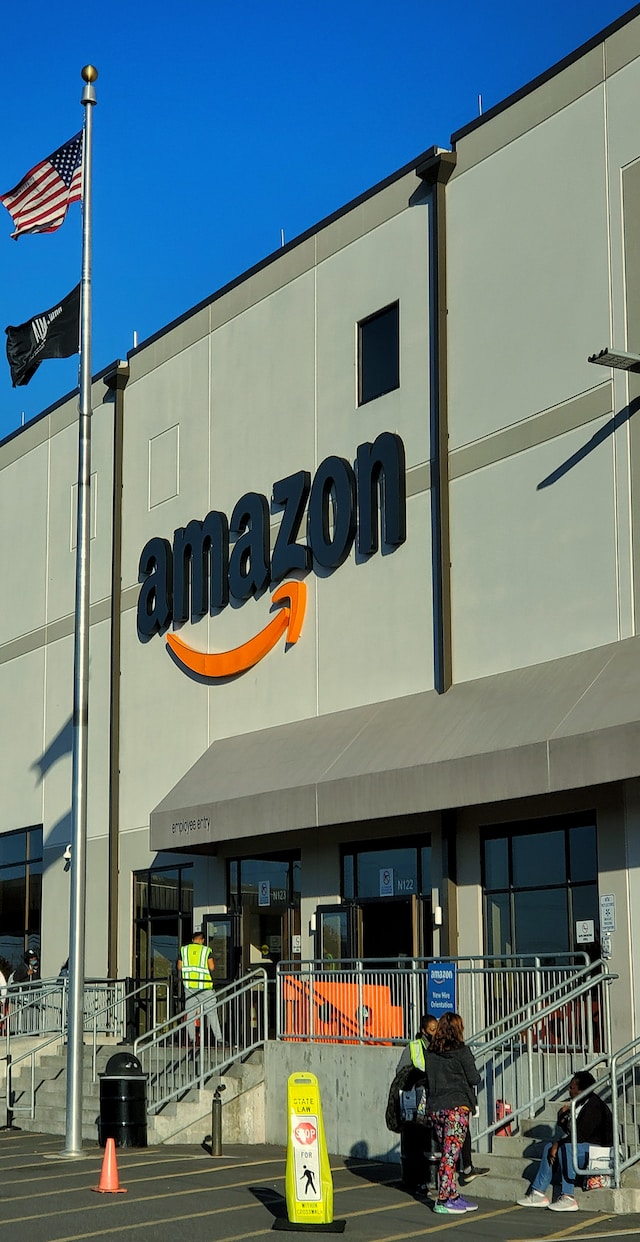Introduction
In today’s highly digitized economy, industrial manufacturers and suppliers are discovering the tremendous value of moving their business online. However, simply launching an ecommerce platform is not enough to guarantee success. For industrial businesses often dealing with niche products, bulk buyers, and complex sales cycles visibility is the cornerstone of online growth. This is where Ecommerce SEO Services become essential.
Unlike traditional SEO, industrial ecommerce SEO is specialized, requiring a deep understanding of technical products, B2B buyer intent, and scalable content strategies. This article explores how Ecommerce SEO Services tailored to the industrial sector can drive scalable, long-term growth.
Why Industrial Ecommerce Needs SEO
Industrial companies face unique challenges in the ecommerce space. They often sell highly specialized products, such as machine parts, valves, automation components, or safety equipment. The potential customers—engineers, procurement managers, or OEMs—search with specific intent and expect accurate, detailed information.
If your industrial ecommerce site isn’t optimized for how these decision-makers search online, you risk losing valuable business to competitors. Ecommerce SEO Services help improve your site’s visibility on search engines, attract the right buyers, and convert traffic into leads or sales.
Search engine optimization (SEO) drives organic traffic—the most cost-effective lead source. For industrial sellers, SEO:
- Targets High-Intent Buyers: Industry professionals use precise terms like “stainless steel industrial valves” rather than generic phrases.
- Builds Long-Term Visibility: Technical content and optimized product pages rank steadily over months and years.
- Reduces Dependence on Ads: While pay-per-click ads drive quick hits, SEO secures sustainable traffic with declining cost-per-lead over time.
- Enhances Brand Credibility: Ranking on page one signals authority, giving buyers confidence in your products and services.
In short, industrial SEO services transform your website into a powerful sales tool.
Key Elements of Scalable Industrial Ecommerce SEO
To scale SEO effectively for industrial ecommerce, you need a robust strategy built on the following pillars:
1. Comprehensive Keyword Research for Niche Markets
Unlike consumer ecommerce, industrial buyers use specific jargon and technical search terms. Successful Ecommerce SEO Services begin with deep keyword research tailored to your product catalog and industry. For example, someone searching for “316 stainless steel ball valve” is very different from someone looking for “kitchen faucet.” Understanding this difference is key to targeting high-intent searches.
2. Optimized Product Pages with Technical Accuracy
Industrial product pages should do more than list a SKU and price. Scalable SEO requires detailed, keyword-optimized product descriptions, specs, CAD files, certifications, and datasheets. This not only satisfies Google’s indexing needs but also enhances user experience, reducing bounce rates and increasing conversions.
3. Scalable Content Development
Educational content like blog posts, case studies, and whitepapers can attract organic traffic while establishing authority. A strategy that scales should include producing content at scale—perhaps hundreds of pages covering use cases, comparisons, or industry standards—while ensuring all content is SEO-friendly.
Many E-commerce SEO Packages include ongoing content creation, enabling industrial companies to rank for a wide range of long-tail keywords relevant to their sector.
4. Technical SEO for Complex Platforms
Industrial ecommerce sites often have large product catalogs, intricate categorization, and legacy platform issues. Ecommerce SEO Services address technical challenges like:
- Optimizing site speed and crawlability
- Implementing schema markup for product details
- Avoiding duplicate content through canonical tags
- Managing URL parameters and redirects
- Ensuring mobile responsiveness and accessibility
These technical elements form the backbone of a scalable SEO infrastructure.
5. Local and Global Targeting
While many industrial suppliers serve national or international markets, some have regional distribution models. Effective SEO strategies accommodate both. For example, local SEO tactics might include optimizing Google Business Profiles and location pages, while international SEO might involve multi-language support and hreflang tags.
Benefits of E-commerce SEO Packages for Industrial Brands
When you invest in professionally managed E-commerce SEO Packages, your business gains access to a suite of scalable services, typically bundled for cost-efficiency and performance. These benefits include:
1. Improved Organic Visibility
By targeting high-value industrial keywords, your products become more visible to the right audience—engineers, facility managers, and purchasing agents.
2. Consistent Lead Generation
As rankings improve, your website generates more organic traffic from high-intent buyers, resulting in more inquiries and sales without relying solely on paid ads.
3. Better ROI
SEO offers long-term returns compared to PPC, which requires ongoing ad spend. Well-executed Ecommerce SEO Services deliver sustained traffic and engagement over time.
4. Scalability Across Product Lines
As your catalog grows, a structured SEO strategy ensures new products are indexed quickly and ranked efficiently. With scalable on-page templates and optimized navigation, you can keep pace with expansion.
5. Competitive Advantage
Many industrial firms are just beginning to invest seriously in ecommerce SEO. Early adopters can dominate search rankings and set the benchmark in their niche.
Choosing the Right Ecommerce SEO Services Provider
Not all SEO agencies are equipped to handle the nuances of industrial ecommerce. When evaluating potential partners, consider the following:
- Industry Experience: Has the agency worked with B2B or industrial clients before?
- Customization: Are the E-commerce SEO Packages tailored to your business, or are they generic?
- Scalability: Can they support your growing catalog and technical demands?
- Reporting & KPIs: Do they offer transparent reporting on keyword rankings, traffic, and conversions?
A reputable SEO agency will act as a strategic partner, not just a service provider.
Choosing the Right eCommerce SEO Service Provider
1. Industry Experience
Look for agencies with proven work in manufacturing, distribution, or industrial equipment. They understand specialized terminology, compliance requirements, and long sales cycles.
2. Transparent Reporting
Your provider should offer clear, regular reports on KPIs like:
- Organic sessions and user behavior
- Keyword ranking improvements
- Number and quality of backlinks
- Lead conversions from organic channels
3. Customized Strategy
Beware of one-size-fits-all packages. Your ideal partner crafts a roadmap aligned with your product mix, revenue goals, and market segments.
4. Technical Expertise
Ensure the team includes technical SEO specialists who can audit complex site structures, manage large sitemaps, and optimize page speed at scale.
5. Collaborative Approach
A successful engagement involves your internal teams—IT, sales, product managers—working closely with the agency. This collaboration ensures accurate product data and timely content updates.
Measuring Success: Essential Metrics
- Organic Traffic Growth: Track month-over-month improvements in search visits.
- Keyword Rankings: Monitor high-value industrial keywords moving onto page one.
- Click-Through Rate (CTR): Higher CTRs on search results indicate compelling titles and descriptions.
- Bounce Rate & Time on Page: Engaging content leads to deeper user sessions and lower bounces.
- Lead Form Submissions: Count RFQ (Request for Quote) or contact form completions from organic traffic.
- Revenue Attribution: Use tracking tools to tie organic leads to actual sales and compute ROI.
Regularly reviewing these metrics guides ongoing optimization and investment decisions.
Overcoming Common Challenges
1. Complex Catalogs
Thousands of SKUs can overwhelm both users and search engines. Break your catalog into logical categories and use faceted navigation carefully to avoid index bloat.
2. Technical Jargon
Too much jargon can confuse non-technical buyers. Balance detailed specs with plain-language summaries to appeal to both engineers and purchasing managers.
3. Measuring ROI
Industrial sales cycles can span months or years. Use SEO metrics like organic traffic, keyword rankings, and lead form submissions. Then tie these leads to closed deals to calculate true ROI.
4. Content Volume
Updating high volumes of product pages manually is time-consuming. Use dynamic templates and integration with your ERP or PIM system to automate content updates.
Conclusion
In 2025, industrial eCommerce SEO is essential for scaling B2B revenue online. By partnering with specialized eCommerce SEO services, you gain expertise in keyword research, product page optimization, technical SEO, content marketing, and link building—tailored to industrial markets. Overcoming challenges like complex catalogs and long sales cycles becomes manageable with automation and a collaborative agency relationship. Tracking key metrics—traffic, rankings, leads, and revenue—proves your SEO investment pays off. Ready to make your industrial online store a growth engine? Invest in focused SEO services today and watch your discoverability, lead generation, and sales soar.
Final Thoughts
As industrial businesses continue their digital transformation, SEO has emerged as a mission-critical investment. With the right Ecommerce SEO Services, companies can scale their online visibility, outpace competitors, and reach decision-makers precisely when they’re searching.
Whether you’re launching a new ecommerce site or optimizing an existing one, choosing the right E-commerce SEO Packages ensures you’re building a sustainable growth engine for years to come.
By focusing on scalable strategies that blend technical precision, content authority, and industry relevance, industrial companies can thrive in the evolving B2B ecommerce landscape.










